In terms of subsidized housing, some think, “Oh, that means Section 8. That means public housing.” No. All housing is subsidized through the mortgage interest deduction. So all of the sprawl we see — the suburbs, the white flight, and all that — that’s subsidized housing. We spend way more money subsidizing rich people than we do subsidizing poor people. If you have a Section 8 voucher, it gives you more housing choices. Rather than saying, “Here’s an affordable housing unit for low-income people to live,” the voucher gives the opportunity to shop around the private rental market and decide where you want to live with your family. But in reality, there are so many constraints on the program that most people end up in very low-income, racially segregated neighborhoods.
So, I, alongside many other people, started to look at how we can provide broader housing choices for people. Maybe they are happy in a lower-income neighborhood. Maybe that’s their roots. Maybe that’s their history. But, maybe not. Maybe they’d like to live in some other part of the region. So one of the things we did was propose legislation. Alderwoman Christine Ingrassia proposed a couple of bills regarding Section 8, one of which now establishes Section 8 as a Fair Housing Protected Class in the City of St. Louis. So it’s now illegal for a landlord to say no to Section 8. If it falls within the cost guidelines of the Section 8 program, you can’t turn away a renter just because they’re using a Section 8 voucher. That’s awesome. Very few cities have that sort of housing protection.
You can’t do policy work in housing without understanding the people who are directly effected — people who live in Section 8 housing and people who live in public housing. So I try to make my work connected to real communities.
I am deeply angry about the history of U.S. policies that we’ve inherited. Mary Pattillo is a sociologist at Northwestern. She’s one of my mentors. I took a class with her and learned a lot about the history of Red Lining, Racially Restrictive Covenants, Block Busting, and Panic Peddling — all of these policies that were from the federal government on down that created legal segregation.
You can’t do policy work in housing without understanding the people who are directly affected — people who live in Section 8 housing and people who live in public housing. So I try to make my work connected to real communities. I’ve been working with City Garden Montessori School. We started an affordable housing task force trying to understand ways in which we might preserve the neighborhoods that they serve. They are focused on Forest Park Southeast, Botanical Heights, Tiffany, Shaw, and parts of Southwest Garden. It’s an extremely diverse and vibrant part of the city, but it’s not going to stay diverse. They’ve lost half of their Black population since 2000. That’s crazy. The cost of housing is going up, people feel excluded, and they feel like the new development coming up is not for them. The number of rental units has gone down, there have been a lot of conversions of four-unit and two-unit buildings into single-family homes, and the renters all get kicked out.
I didn’t want to move to a neighborhood I felt was a rapidly gentrifying area because I didn’t want to be one of those gentrifiers. And I thought that Fox Park is also gentrifying, but wherever I live I also would want to be, sort of ironically, an anti-gentrification gentrifier. It’s pretty confusing. A lot of cognitive dissonance. But you gotta live somewhere.
Now that I’ve seen both protests in Ferguson and South City, on the ground and the way that they’ve been reported, it makes me realize how much I don’t understand what’s really going on. Every event I’ve been to, every protest, either it’s been peaceful and, therefore, it hasn’t been reported on, or there was maybe a broken window or something like that and the way that it’s portrayed totally misses the fact that there were hundreds of peaceful people. I just think there’s been a lot of misreporting and it’s made me very skeptical of mainstream media coverage of the movement.
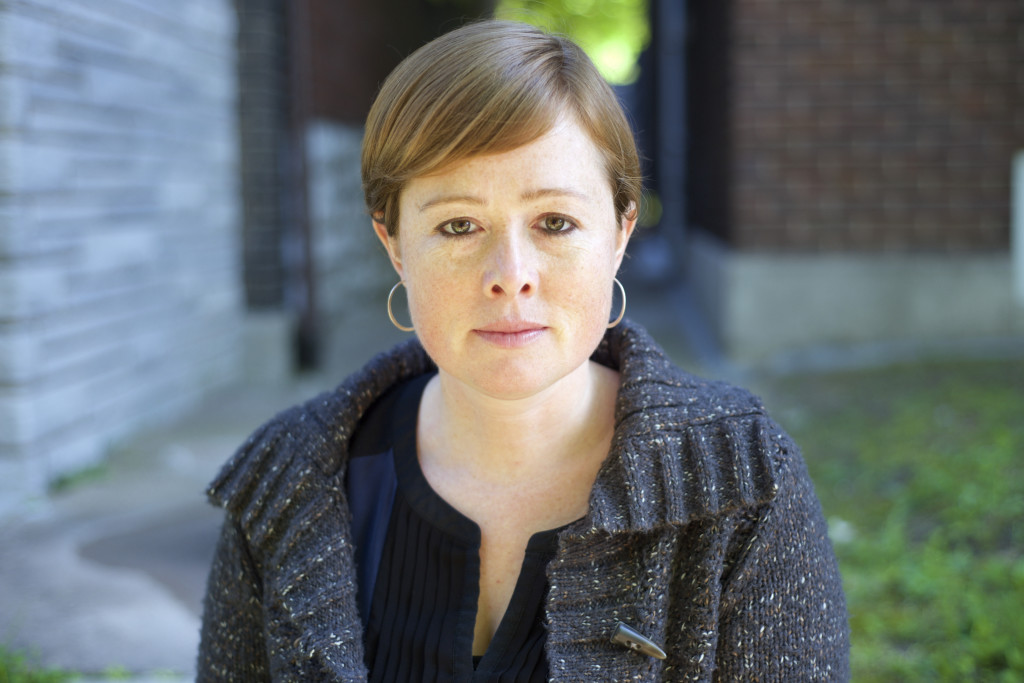
Molly Metzger, photo by Lindy Drew
Unflinching means exercising your freedom of speech. Not being intimidated. Unflinching also has to do with this other word I’m trying to understand that I’m not there with yet, which is liberation — knowing what we deserve as human beings and really being imaginative about what is possible in society and not giving up. We have to be politically pragmatic. We all have to get stuff done through our messed up form of democracy we have. But that doesn’t mean we should have our imaginations limited by political pragmatism. So I think of unflinching as being visionary and not compromising your deepest ideals.
There’s a group here in South City called Voices of Women that has a small micro-lending bank — Helping Hands Bank — and it’s been successful since 2008. Now they’re trying to get into affordable housing development as well, like low-income ownership for long-term residents of Forest Park Southeast. We’re hoping that some of these Wash U owned properties will be sold to Voices of Women. And I want to connect all of my classes to this stuff. That’s something my students have enjoyed a lot.

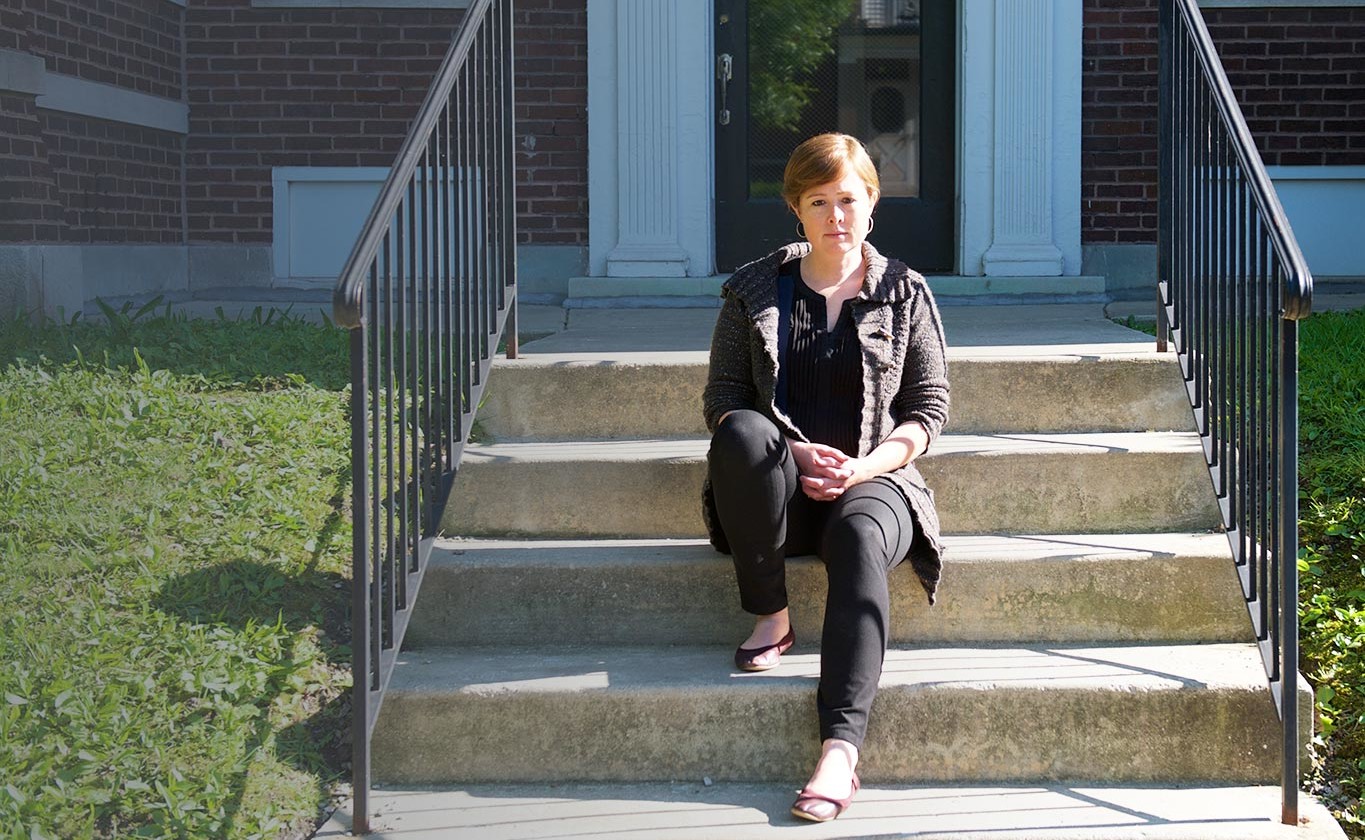
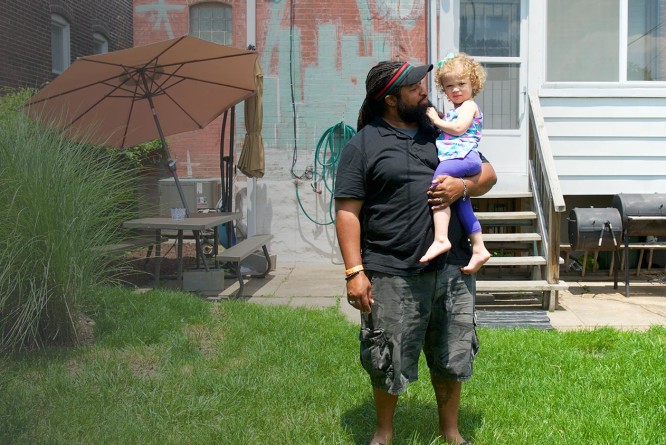
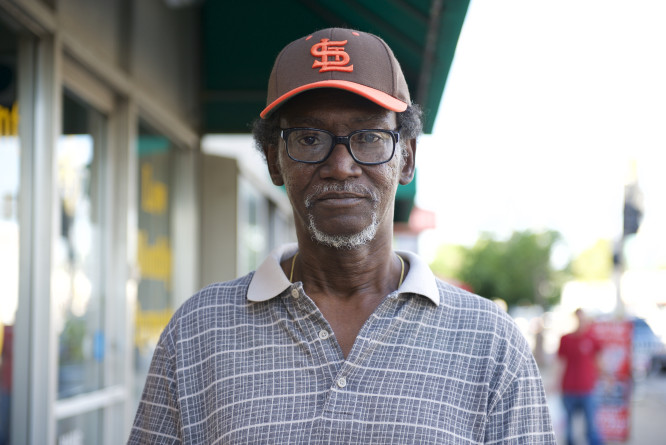
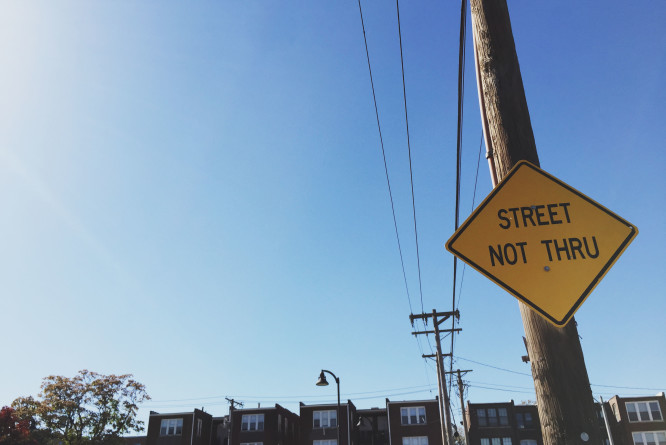
#FwdThruFerguson